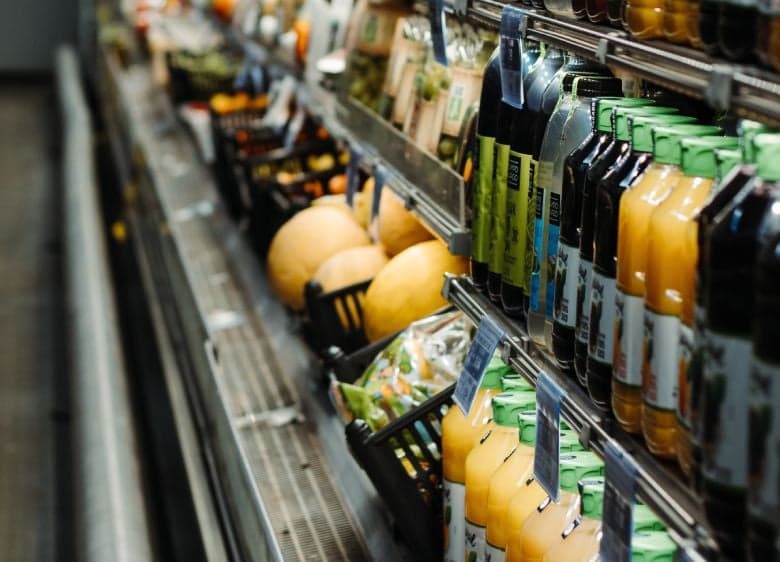Household energy costs drive prices even higher in Austria

Austria has just recorded a flash estimate with inflation at 11.1 percent in January - rising again after dropping for three months. So what is driving prices up?
After three months of inflation dropping steadily, which gave Austrians a good reason to be optimistic about 2023, the January flash estimate puts the inflation rate at 11.1 percent, with the primary price driver being household energy, according to Statistics Austria.
"The main reasons for this are strong price increases for household energy, despite the electricity price brake", said Statistics Austria Director General Tobias Thomas.
Since December 1st, Austria has had an "electricity price brake" in place, as reported. The price of electricity has been subsidised up to a consumption of 2,900 kilowatt hours, the government said. Until that limit, it costs only ten cents per kilowatt hour – the energy price from before the current energy crisis.
Above that consumption limit, people will have to pay market prices for what they consume.
READ ALSO: How could Austria’s new electricity price brake benefit you?
So why are prices still on the rise? The issue is that one of the things bringing energy prices up sharply is the increase in network costs, which would include grid maintenance and transmission costs.
While the federal government has measures to contain those costs, those are not expected to take effect until March.
Federal measures to halt rising energy prices, including the price brake, are set to be in place until at least June 30th 2024, as The Local reported. However, many believe prices are still rising because the one-off payments policy is not enough to contain inflation - only to dampen its perceived effects on people temporarily.
READ ALSO: Five reasons to be optimistic about life in Austria in 2023
Criticism from the opposition
So far, the Austrian government has been counting on the price brake and one-off payments to contain the rising cost of living. However, as inflation once again goes up (from 10.2 percent in December and 10.6 percent in November, many have come to criticise the government's measures as a "resounding failure".
The centre-left SPÖ party has released a statement criticising the failure of the ÖVP-Green measures. "Inflation is rising to lofty heights because the government is still refusing to adopt long overdue measures to lower prices," SPÖ federal executive Christian Deutsch said.
READ ALSO: What are Austria’s Social Democratic Party’s plans for freezing rents until 2025?
He stressed that the government's "policy of one-off payments has failed resoundingly".
For the SPÖ federal manager, it is clear: "In order to relieve the burden on the population and businesses, secure prosperity and prevent poverty, a national gas price cap must be introduced, the VAT on basic foodstuffs must be cancelled and rents must be frozen. An immediate inflation freeze is needed.", he added.
Comments
See Also
After three months of inflation dropping steadily, which gave Austrians a good reason to be optimistic about 2023, the January flash estimate puts the inflation rate at 11.1 percent, with the primary price driver being household energy, according to Statistics Austria.
"The main reasons for this are strong price increases for household energy, despite the electricity price brake", said Statistics Austria Director General Tobias Thomas.
Since December 1st, Austria has had an "electricity price brake" in place, as reported. The price of electricity has been subsidised up to a consumption of 2,900 kilowatt hours, the government said. Until that limit, it costs only ten cents per kilowatt hour – the energy price from before the current energy crisis.
Above that consumption limit, people will have to pay market prices for what they consume.
READ ALSO: How could Austria’s new electricity price brake benefit you?
So why are prices still on the rise? The issue is that one of the things bringing energy prices up sharply is the increase in network costs, which would include grid maintenance and transmission costs.
While the federal government has measures to contain those costs, those are not expected to take effect until March.
Federal measures to halt rising energy prices, including the price brake, are set to be in place until at least June 30th 2024, as The Local reported. However, many believe prices are still rising because the one-off payments policy is not enough to contain inflation - only to dampen its perceived effects on people temporarily.
READ ALSO: Five reasons to be optimistic about life in Austria in 2023
Criticism from the opposition
So far, the Austrian government has been counting on the price brake and one-off payments to contain the rising cost of living. However, as inflation once again goes up (from 10.2 percent in December and 10.6 percent in November, many have come to criticise the government's measures as a "resounding failure".
The centre-left SPÖ party has released a statement criticising the failure of the ÖVP-Green measures. "Inflation is rising to lofty heights because the government is still refusing to adopt long overdue measures to lower prices," SPÖ federal executive Christian Deutsch said.
READ ALSO: What are Austria’s Social Democratic Party’s plans for freezing rents until 2025?
He stressed that the government's "policy of one-off payments has failed resoundingly".
For the SPÖ federal manager, it is clear: "In order to relieve the burden on the population and businesses, secure prosperity and prevent poverty, a national gas price cap must be introduced, the VAT on basic foodstuffs must be cancelled and rents must be frozen. An immediate inflation freeze is needed.", he added.
Join the conversation in our comments section below. Share your own views and experience and if you have a question or suggestion for our journalists then email us at [email protected].
Please keep comments civil, constructive and on topic – and make sure to read our terms of use before getting involved.
Please log in here to leave a comment.